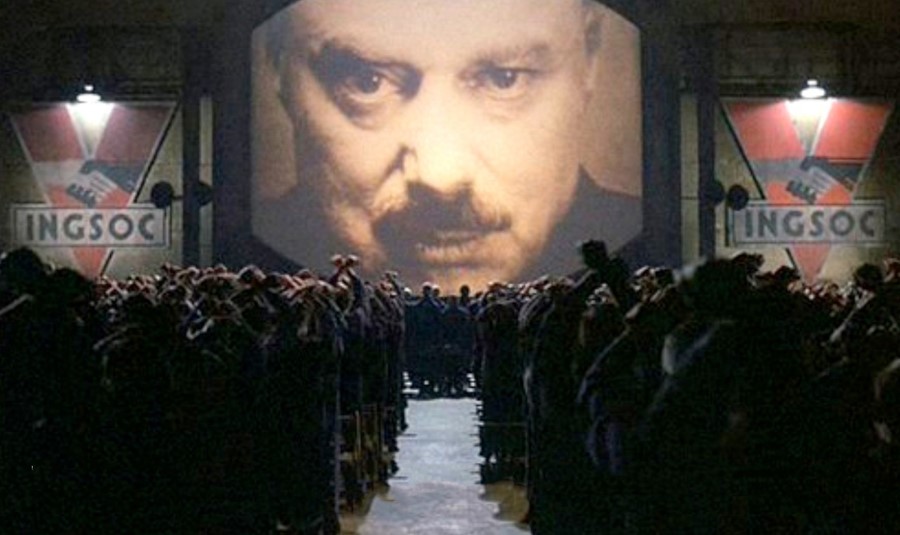“Confessions” was a word game popular in Victorian England. It involved candidly answering revealing questions that went to character. One could learn a lot about a person from reading his answers. In the spring of 1865, Karl Marx played the game (apparently he played the game often, and here we have his answers recorded). He was asked what vice he most hated. His answer: “Servility.” He was also asked his idea of misery: “To submit.”

Reflecting on Marx’s answers over coffee this morning, I realized that this is why, despite being a Marxist and very much a man of the left, I no longer consider myself a socialist: socialism has required servility and submission everywhere it has been tried (or installed, some might insist). Indeed, servility and submission seem to be intrinsic to the logic of socialism. Like Marx, I hate servility and submission.
This is why, I think, the corporate state in its overdevelopment appears more and more like a socialist state: elite control over the economy is not enough for the masters of the universe; they also must comprehensively manage the people reduced to masses, even to the extent that the masses—the proles—must think and talk in a prescribed manner. As with the Soviet Union, even telling jokes under corporate state rule risks reputational damage and loss of livelihood.
Bureaucratic collectivism demands a reduction in the capacity of people to think and speak for themselves. Bureaucratic collectivism requires that the state replace the family. In meeting the needs of the people, the corporate state, like the socialist state, tells the people what those needs are. Bureaucratic collectivism demands servility. It necessitates submission. Right or left, totalitarianism, naked or inverted, makes servants of everybody.
Today, we are witnessing a Great Convergence. The US and China, whatever condemnation a Democrat politician may cobble together in response to a questions about China’s totalitarianism (which is never really considerable, genocide and organ harvesting being an ignorable fact), are partners in organizing the world economy (a project Joe Biden spearheaded, for the record).
For my friends on the right, if you loathe socialism, then you must also loathe the corporate state. It’s the New Fascism. For my friends on the left (not the faux left of woke progressivism, but the actual leftists who still center social class in their understanding of social dynamics), I don’t believe socialism is the solution to the corporate state. I think what you see in the corporate state is what you can expect in the next failed socialist experiment. Unlike Marx, we have a record we may consult.
One might say that the Soviet Union was an exception. Oh, and China, as well. And, of course, Cuba. Etcetera. One might say, “But this time the experiment will succeed!” But it’s the same story everywhere. It never works in the end. Not for the people anyway. For them, it always manifests like the nightmare world of Orwell’s imagination (which is why, as Christopher Hitchens noted, Orwell never needed to spend much time criticizing national socialism—metaphorically criticizing Stalinism was good enough to get across the point).
I have read most of everything Marx ever wrote. I am now convinced that every instantiation of “really existing” socialism was not what Marx would have desired in a social system fit for species-being. Why? Because he most hated servility and considered the state of submission to be the most miserable state of them all. If Marx were alive today, I seriously doubt he would be a socialist. But I know I am not. Not anymore.
When asked about his maxim, Marx answered: Nihil humani a me alienum puto. Asked about his motto, he responded: De omnibus dubitandum. These responses reinforce my confidence that Marx, if he were alive today, would likely consider a different path forward from the one he offered to the world in 1848. This does not diminished his critique and his discoveries. After all, Marx (and Engels) insisted that critical political analysis must be concerned first and foremost with existing conditions in the light of history.

Alas, you have fallen for the old lie – socialism CANNOT work. I suggest you read Theories of Surplus Value and the theories of state capitalism to understand why the USSR was not socialist.
The Soviet Union was not state capitalist. It was state socialist. See my lengthy 2003 review essay “The Soviet Union: State Capitalist or Siege Socialist?” in Nature, Society, and Thought. Here’s a link for your convenience: https://conservancy.umn.edu/bitstream/handle/11299/150737/nst161a.pdf?sequence=1&isAllowed=y It starts on page 107.